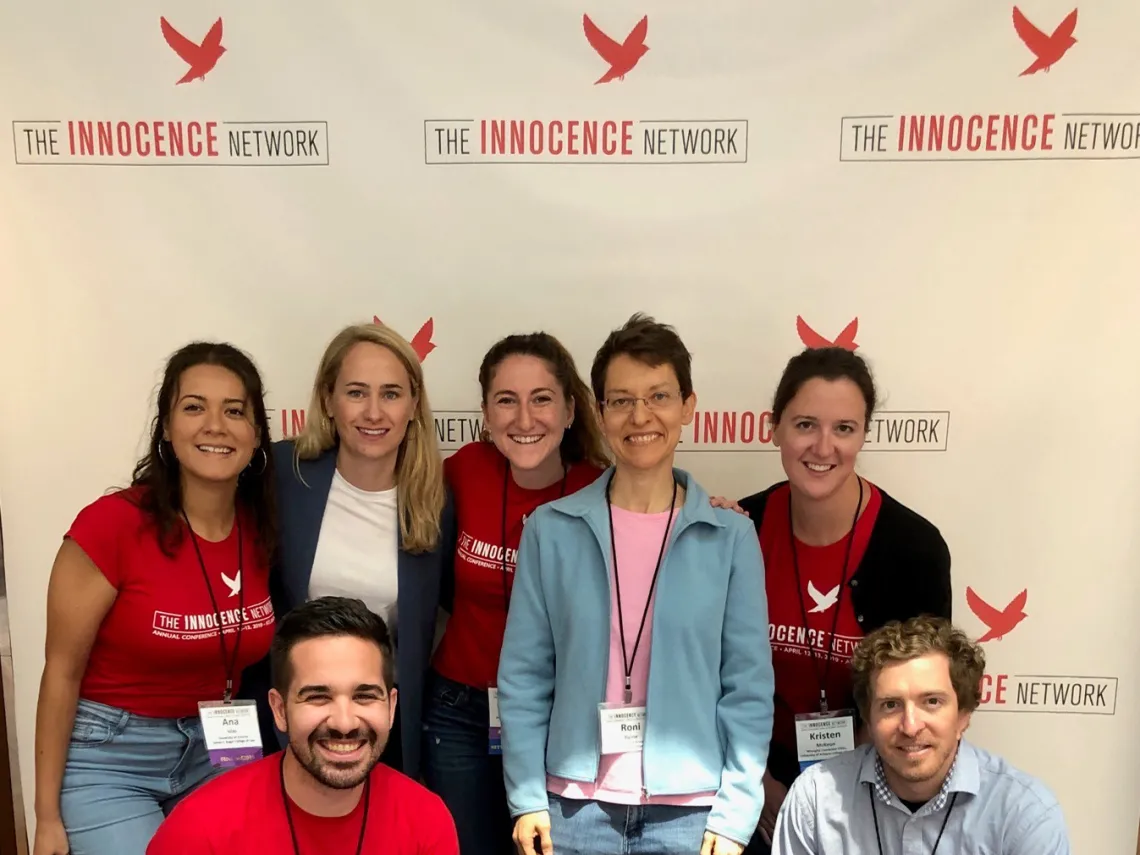University of Arizona’s Wrongful Conviction Clinic Joins the Innocence Network, Gets New Name

The Wrongful Conviction Clinic at the University of Arizona James E. Rogers College of Law has been accepted as a member of the Innocence Network and has changed its name to the University of Arizona Innocence Project.
The Innocence Network is an affiliation of more than 60 organizations in the U.S. and around the world providing pro bono legal services to individuals with claims of innocence and working to redress the causes of wrongful conviction.
“We are thrilled to join the Innocence Network, working together with practitioners and law students throughout Arizona and across the country who are committed to uncovering injustices and reforming the justice system,” said Vanessa Buch, director of the University of Arizona Innocence Project.
Training Students, Serving Clients
The University of Arizona Innocence Project began as the Wrongful Conviction Clinic in 2014. After years of University of Arizona Law professors and students informally volunteering on wrongful conviction cases on an ad hoc basis, the formation of the clinic created a more targeted approach and allowed students to receive academic credit for their work.
Since its founding, 45 students have participated in the clinic, with each student serving an average of roughly 150 hours per semester, says Buch. In that time, the clinic has received more than $890,000 in various federal grants to help support its work.
The University of Arizona Innocence Project’s services are in high demand: at any given time, the faculty and students have an active docket of about 12 cases, and they receive dozens of requests for assistance each month. Beyond direct client representation, clinic participants have also served as expert consultants in DNA cases, conducted an exhaustive forensic audit, and filed amicus briefs in cases where issues critical to wrongful conviction cases are at stake. To date, the clinic has helped secure the release of two individuals.
“For many innocent defendants, evidence to prove their claims of innocence does not come to light until long after conviction," said Buch. "Even then, these cases can require years of resource-intensive investigation and litigation. For many of our clients, the University of Arizona Innocence Project is their last resort.”
Students in the yearlong clinic screen prisoners’ applications for assistance, review trial transcripts and case files, visit potential clients at prisons throughout the state, interview witnesses, collect records, consult subject matter experts, conduct legal research, and draft pleadings.
In addition to casework, University of Arizona Innocence Project students meet weekly as a class, learning about common causes of wrongful convictions, the substantive law addressing those issues, available legal remedies, and ongoing and potential criminal justice reforms. Students also receive practical training in skills such as presentation and advocacy, cross-cultural lawyering, interviewing and investigation skills. Guest speakers from the legal and law enforcement professions and visits to the Pima County Medical Examiner’s Office and the Tucson Police Department Crime Lab round out the curriculum for a holistic learning experience.
“Being a part of the University of Arizona Innocence Project has taught me the need to question our assumptions about innocence and guilt, and how both prosecution and defense counsel need to take steps to counter confirmation bias,” said second-year law student Margot Veranes. “It's also taught me how fragile our freedom is. As a future attorney, I think we always need to learn the individual power we each will have as attorneys in the criminal justice system.”
Innocence Network Membership Comes with Valuable Benefits
Innocence Network members are able to collaborate and share resources with other member organizations, receive organizational support on issues such as fundraising and strategic planning, and have access to grants to help offer immediate financial support to exonerees in the days following their exoneration.
To become a member, an organization must pass the Innocence Network’s review of its policies and procedures, organizational structure and financial stability.
“Becoming part of the Innocence Network family is both an endorsement of the strength of the program we have built here at College of Law and will also raise the clinic’s profile to allow us to continue and expand our work in Arizona,” said Buch.
The Innocence Network grew out of The Innocence Project, founded in 1992 at the Cardozo School of Law by Peter Neufeld and Barry Scheck. The Innocence Project works to exonerate the wrongly convicted through DNA testing, reform the criminal justice system, provide support to exonerees post-release, and provide the research-base to support its legal and policy work.
Learn more about the University of Arizona Innocence Project.
